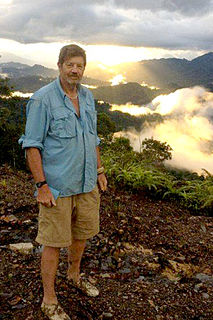A Quote by Thomas Merton
The geographical pilgrimage is the symbolic acting out an inner journey. The inner journey is the interpolation of the meanings and signs of the outer pilgrimage. One can have one without the other. It is best to have both.
Quote Topics
Related Quotes
The paradox: there can be no pilgrimage without a destination, but the destination is also not the real point of the endeavor. Not the destination, but the willingness to wander in pursuit characterizes pilgrimage. Willingness: to hear the tales along the way, to make the casual choices of travel, to acquiesce even to boredom. That's pilgrimage -- a mind full of journey.
I am convinced that pilgrimage is still a bona fide spirit-renewing ritual. But I also believe in pilgrimage as a powerful metaphor for any journey with the purpose of finding something that matters deeply to the traveler. With a deepening of focus, keen prepartion, attention to the path below our feet, and respect for the destination at hand, it is possible to transform, even the most ordinary journey into a sacred journey, a pligrimage.
When I use the words 'inner journey', I simply mean that you have looked at one aspect of the journey in your life called 'outer', now try to look at another aspect of the journey called 'inner'. You have been running after money, now run after meditation. You have been running after power, now run after God. Both are running. Once you start running after meditation then one day I will tell you, 'Now drop meditation too. Now stop running.' And when you stop running then real meditation happens.
As instruments for knowing the objects, the sense organs are outside, and so they are called outer senses; and the mind is called the inner sense because it is inside. But the distinction between inner and outer is only with reference to the body; in truth, there is neither inner nor outer. The mind's nature is to remain pure like ether.
































